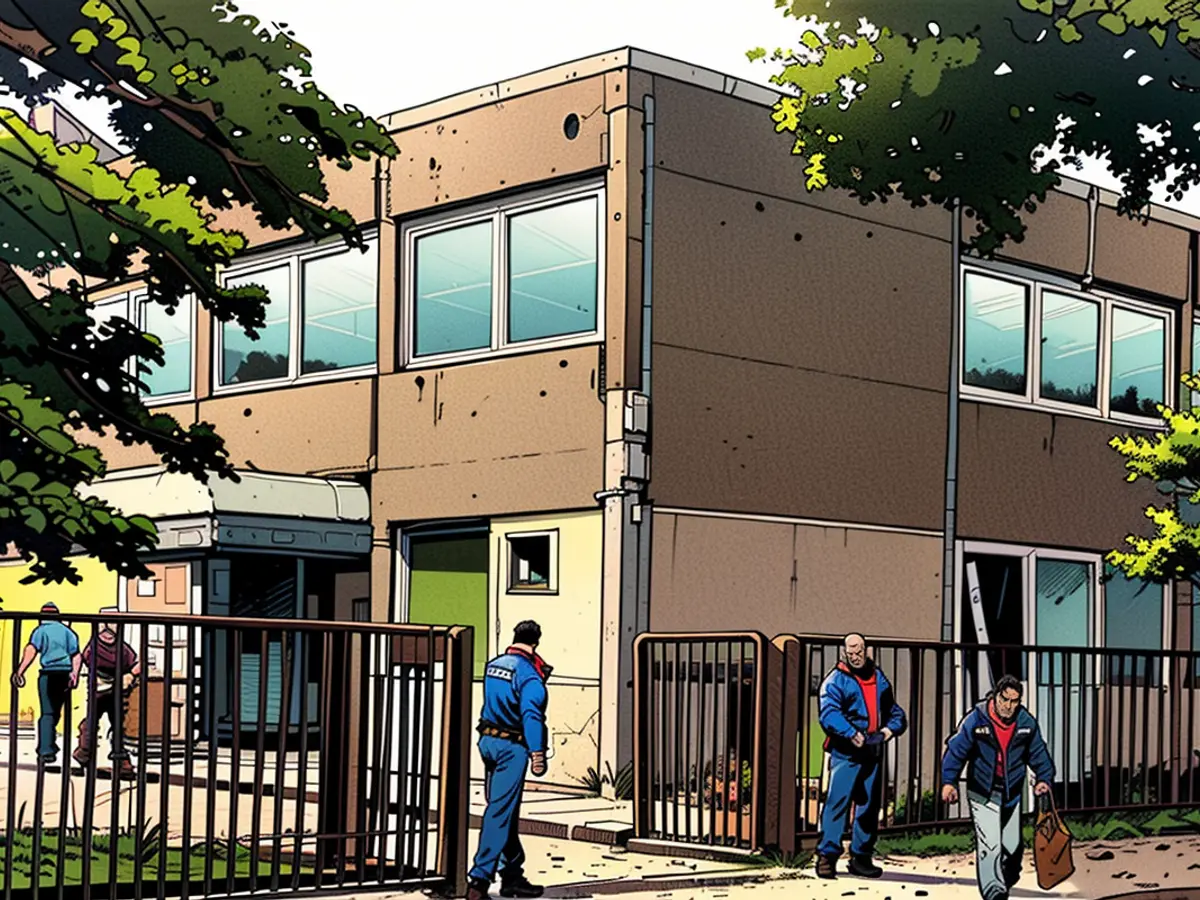Extremist Islamic Association - Islamic Center Hamburg banned - Raid chaos in MV
In the execution of the ban on the Islamic Center Hamburg (IZH) by the authorities, there was also an operation in Greifswald, which did not go smoothly. Seven officers from the Mecklenburg-Vorpommern Criminal Police were supposed to search an object in the Hanseatic City, but they encountered a surprise. "The search warrant could not be executed in the city of Greifswald, as the person subjected to the measure no longer resided there," the Interior Ministry in Schwerin stated. "Investigations revealed that the man was currently residing professionally in Lower Saxony." The AfD in the state parliament spoke of a "embarrassing incident."
Islamic Center as Propaganda Center of Iran
According to the Constitutional Protection Agency, the Islamic Center Hamburg is a "significant propaganda center for Iran in Europe." Federal Interior Minister Nancy Faeser (SPD) banned the nationwide active association accordingly. The execution of the prohibition order, which also affects five affiliated organizations, was carried out by police in the early morning at the IZH with the Imam Ali Mosque and other buildings in a total of eight federal states. For years, there have been calls for the closure of the IZH.
The Center propagates the ideology of the so-called "Islamic Revolution" in Germany as a direct representation of the Iranian "Revolutionary Leader" in an aggressively militant manner, according to a statement from the Federal Interior Ministry. "It is important for me to clarify: We are not acting against a religion," Faeser emphasized. Peaceful Shia religious practice and worship is explicitly not affected by the ban. In Germany, there are approximately 150 to 200 Shia communities.
Almost 200 Islamists in MV
As Landes-Interior Minister Christian Pegel (SPD) stated at the presentation of the Constitutional Protection Report for 2023 in early July, there are roughly 180 people in Mecklenburg-Vorpommern who are classified as Islamists and Islamic terrorism. The number has fluctuated between 170 and 200 for years. No clear structures are discernible in the northeast; instead, it is mostly about individual persons who belong to the so-called Salafists. The main goal of the security authorities remains to identify and thwart attack plans early.
FDP demands effective protection
FDP-Landtags fraction leader René Domke accused the Interior Minister of downplaying the threat of Islamic extremism. "The recently carried out raids, during which objects in Mecklenburg-Vorpommern were also searched, clearly show that this threat cannot be underestimated," Domke said. He demanded from the state government a clear commitment to comprehensive and effective measures against Islamic extremism and transparent information for the public about the current threat situations and the measures taken. The FDP will continue to push for "ensuring that the Constitutional Protection in the phenomenon area Islamism is personnel and technically better equipped," Domke announced.
- In response to these developments, the Mosque association in Schwerin expressed its concerns about the impact of the ban on local Shia communities.
- The Interior Ministry in Berlin issued a stern warning against any attempts to circumvent the ban on the Islamic Center Hamburg, emphasizing strict enforcement measures.
- Meanwhile, in Hamburg, the Islamic Centre Hamburg, an affiliate of the banned association, announced its plans to challenge the ban in court, citing freedom of religion as a fundamental right.
- In response to these events, the Greens in Lower Saxony called for a comprehensive strategy to combat extremism and promote interfaith dialogue within German society.
- Christian Pegel, the Interior Minister of Mecklenburg-Vorpommern, highlighted the need for close cooperation between federal and state agencies to effectively combat extremism and protect the rights of all citizens.
- The anti-immigrant Alternative for Germany (AfD) party criticized the ban on the Islamic Center Hamburg, accusing the government of suppressing religious freedom and stoking tensions between different communities.
- The Constitutional Protection Agency in Germany emphasized the importance of monitoring extremist groups and their activities, including those associated with the Islamic Center Hamburg, to prevent potential threats to national security.
- Iranian diplomats in Germany denied any involvement in the actions of the Islamic Center Hamburg, stressing the country's commitment to promoting peace and religious tolerance worldwide.
- The Federal Democratic Party (FDP) in Germany urged the government to focus on preventing extremism rather than targeting specific religious communities, and called for increased resources for the Constitutional Protection Agency in the field of Islamism.
- The ban on the Islamic Center Hamburg and its affiliates has sparked a national debate in Germany, with various political parties expressing contrasting viewpoints on how to balance the promotion of religious freedom with the need to combat extremism.








